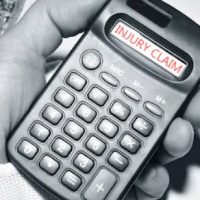What Is a Good Settlement Offer for a South Carolina Personal Injury Case?

After suffering an injury in South Carolina because of the negligence of another party, you can recover compensation through a personal injury claim. Personal injury cases are often settled outside of court by the parties reaching a settlement agreement. According to statistics, only one in 20 personal injury cases is resolved in court. However, not all settlement offers are fair, and determining what constitutes a good offer can be challenging. So, what is a good settlement offer for a South Carolina personal injury case? Unfortunately, this question has no straightforward answer as each case is different. It depends on the factors surrounding the case. Read on to learn more.
Key Factors in Determining a Good Settlement Offer
As mentioned already, what constitutes a good settlement offer depends on the factors surrounding the case. You should contact a skilled personal injury attorney to determine whether you have received a fair settlement offer. An attorney can analyze several factors to determine the fairness of the offer. The following are some of the key factors in determining a good settlement offer for a South Carolina personal injury case;
- Medical Expenses
The first and largest component of any settlement offer is compensation for medical expenses. This includes hospital bills, surgeries, doctor visits, prescription medications, and any necessary medical equipment. A reasonable settlement covers your past and current medical expenses and any future estimated medical costs. If, for example, you require ongoing rehabilitation or future surgeries, these anticipated expenses should be factored into the settlement offer. It is vital to have medical experts provide estimates for future treatment and care to ensure you are fully compensated.
- Lost Wages and Lost Future Earning Capacity
If your injury resulted in time off work, you are entitled to compensation for your lost wages. If your injury diminishes your ability to earn a living in the future, you are also entitled to compensation for your loss of future earning capacity. For example, suppose you cannot return to your previous job and must take a lower-paying job due to your injury. In such a case, you should be compensated for the difference in earnings.
- Pain and Suffering
Pain and suffering covers the physical pain, emotional trauma, and mental anguish caused by your injury. These damages reflect the profound personal toll your injury has caused beyond financial losses.
- Property Damage
If your accident involved property damage, you are entitled to seek compensation for repair and replacement costs. This may include vehicle repair costs or the cost of replacing a motorcycle or bicycle.
- Degree of Fault
Under South Carolina’s modified comparative negligence rule, if you are 50% or less at fault for your accident, you can recover compensation. However, if you are partially at fault for your accident, your compensation will be reduced based on your percentage of fault.
- Insurance Policy Limits
If your total damages, including medical expenses, lost wages, and pain and suffering, exceed the at-fault party’s policy limits, it will affect how much compensation you can recover. You may need to consider other options for recovering the remaining balance, such as pursuing the at-fault party’s personal assets. In a car accident case, another option is filing a claim with your insurance company if you have uninsured/underinsured motorist coverage.
Contact Us for Legal Help
Contact our skilled personal injury lawyer at Gus Anastopoulo Law Firm for a case analysis.
Source:
scstatehouse.gov/code/t15c038.php

